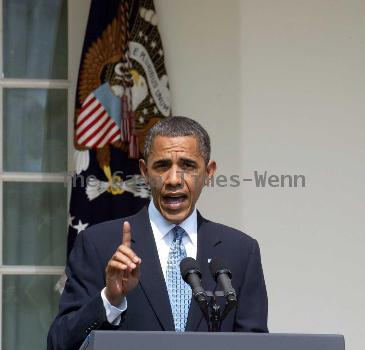Lawmakers say Congress must protect embryonic stem cell research in wake of court rulings
By APThursday, September 16, 2010
Lawmakers: protect embryonic stem cell research
WASHINGTON — Sen. Arlen Specter said Thursday that Congress should “get busy” on giving legal stature to the federal funding of human embryonic stem cell research to avoid giving a final say on the issue to a conservative Supreme Court.
The Pennsylvania Democrat spoke at a Senate hearing where scientists also expressed concern about recent court rulings that have disrupted funding for embryonic stem cell research, seen as offering promising potential for treating Parkinson’s Disease, spinal cord injuries and numerous other debilitating illnesses.
“Congress had better get busy and had better act on this subject so we do not wait for court action,” said Specter, who earlier this week introduced legislation to codify rules issues by President Barack Obama last year to ease restrictions on embryonic stem cell research.
He cited several recent cases where the Supreme Court had issued stays on lower court rulings on “ideological grounds.”
Sen. Tom Harkin, D-Iowa, head of the Senate Appropriations health subcommittee that held the hearing, concurred. “We’ve come too far to give up now,” he said. “If we don’t win this battle now we’ll have to take it up in Congress.” Harkin too has introduced legislation to allow for federal funding of human embryonic stem cell research.
The National Institutes of Health has already spent more than $500 million on this research, proceeding with federal funding since President George W. Bush in 2001 allowed restricted federal assistance.
But last month U.S. District Court Judge Royce Lamberth issued a preliminary injunction in which he stated that the research violated a 1996 law banning the use of taxpayer money to derive stem cells from embryos. An appeals court has since temporarily stayed that order until it can hear full arguments in the coming weeks.
Despite that temporary reprieve, the injunction “has created deep uncertainty in the field of embryonic stem cell research,” testified NIH director Francis S. Collins. He said 244 pending grants adding up to about $200 million had to be put on hold. To have funding cut off “would be a devastating blow.”
George Q. Daley, associate director of the stem cell program at Children’s Hospital Boston, said doubts about court action are “disrupting our research, they are dissuading scientists from entering the field and they are threatening American preeminence in the research.”
Embryonic stem cells have the potential to be turned into different kinds of tissue that could be used to regenerate and repair tissue and treat a host of diseases including heart disease, Parkinson’s, diabetes and Lou Gehrig’s disease. The cells are derived from excess embryos created during in vitro fertilization therapies that would eventually be discarded.
Opponents say the research is another form of abortion because human embryos must be destroyed to obtain the stem cells.
Sen. Roger Wicker, R-Miss., co-author of the 1996 law prohibiting the use of federal funds in work that harms an embryo, said at the hearing that the emphasis should be put on using adult stem cells for research, thus avoiding the “ethical challenges” associated with embryonic cells.
As a result of that law, government policy has been to work with stem cells after private money is used to cull them from embryos.
Collins said the NIH currents spends more on adult stem cell research than on embryonic stem cells, but that the two types of cells have different potential and current uses in both areas must be pursued.
Tags: Barack Obama, Biology, Cell Biology, Medical Research, National Courts, North America, Science Policy, Scientific Controversies, Scientific Ethics, Stem Cell Research, Stem Cell Research Controversy, United States, Washington

